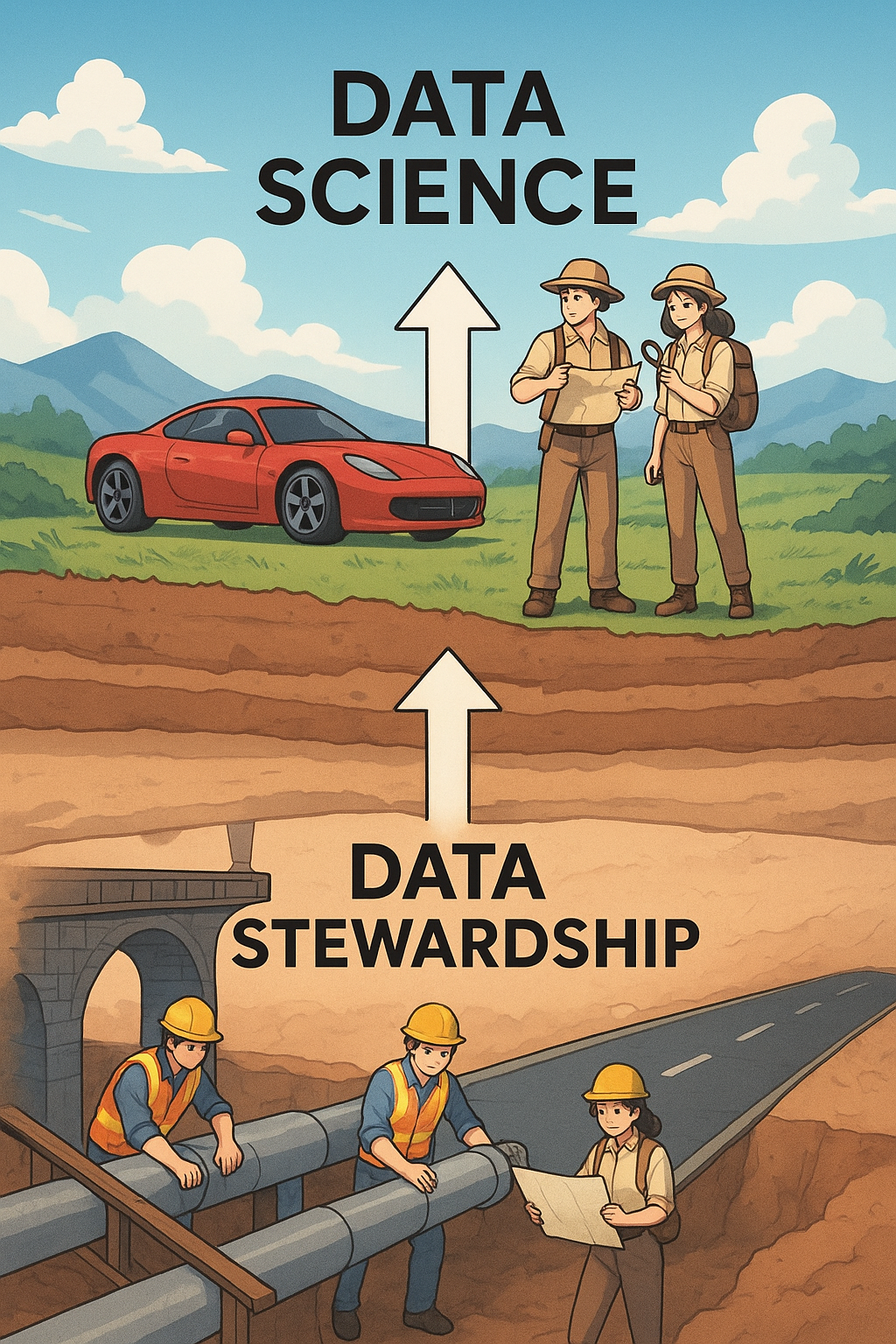November 03, 2025

You can’t hire your way out of a data stewardship problem. 🏗️
I keep seeing the same pattern at small biotech companies:
→ Team doubles after funding
→ Data requests pile up
→ Leadership posts a Data Scientist role
→ New hire gets buried in “quick reports”
→ Six months later, same bottleneck exists
Here’s what’s actually happening: They’re hiring a Ferrari to fix their roads. 🏎️
𝗗𝗮𝘁𝗮 𝗦𝗰𝗶𝗲𝗻𝘁𝗶𝘀𝘁𝘀 𝗴𝗲𝗻𝗲𝗿𝗮𝘁𝗲 𝗻𝗲𝘄 𝗶𝗻𝘀𝗶𝗴𝗵𝘁𝘀
→ Build ML models
→ Design novel analyses
→ Answer questions nobody’s asked yet
→ Create competitive advantage through discovery
𝗗𝗮𝘁𝗮 𝗦𝘁𝗲𝘄𝗮𝗿𝗱𝘀 𝗯𝘂𝗶𝗹𝗱 𝘀𝘆𝘀𝘁𝗲𝗺𝘀 𝗳𝗼𝗿 𝗶𝗻𝘀𝗶𝗴𝗵𝘁𝘀
→ Create self-service tools
→ Build data pipelines
→ Answer the same questions 100 times (so nobody has to again)
→ Create competitive advantage through efficiency
Both roles are critical. But timing matters.
When scientists spend 8+ hours weekly on routine reporting, that’s not a data science problem. That’s a data stewardship problem.
A real example: One client was hiring their third data scientist while their team waited days for basic QC reports. We built a self-service dashboard instead. Reporting time dropped from 8 hours to 45 minutes. The data scientists? They finally got to do actual data science.
𝗧𝗵𝗲 𝘁𝗲𝘀𝘁 𝗳𝗼𝗿 𝘄𝗵𝗮𝘁 𝘆𝗼𝘂 𝗻𝗲𝗲𝗱:
If someone asks “Can you pull this report?” for the tenth time this month → You need a steward
If someone asks “Can you discover something we don’t know?” → You need a scientist
Most early-stage biotechs need stewardship infrastructure before advanced analytics. Build the roads before you buy the Ferrari.
The good news? Data stewardship directly enables better data science. Once scientists can self-serve routine analyses, your data science team can focus on the questions that actually require their expertise.
What’s been your experience? Have you seen teams struggle with this distinction?



